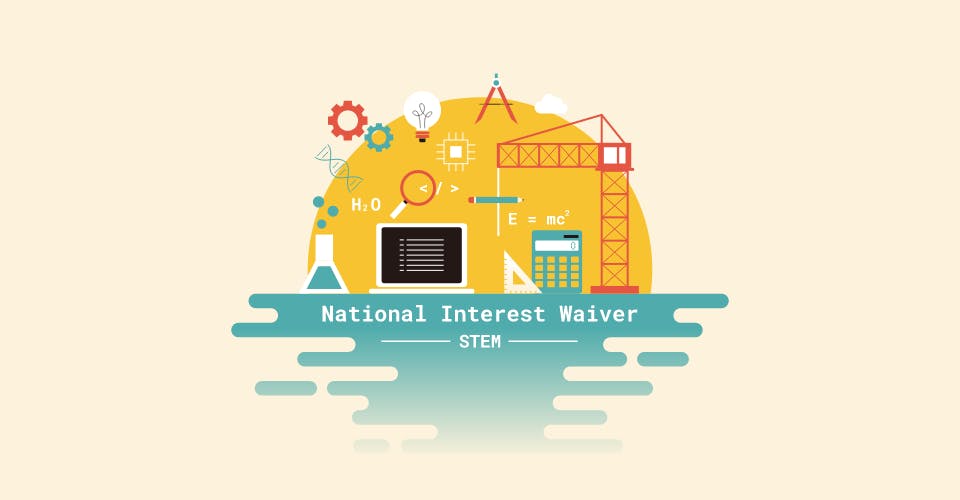The USCIS has added new criteria and guidance for adjudicating officers in processing select NIW—National Interest Waiver applications. The new criteria mostly pertains to those NIW applicants who are looking to come to the United States on a self-petition at the request of their specialized knowledge in a STEM field. For those interested, or currently going through the NIW process, you can access the updated guidance on the USCIS Policy Manual.
Specifically, you will need to locate Volume 6 of the Policy Manual, and then scroll to Chapter 5, Advanced Degree or Exceptional Ability. New information and specifics on the evidentiary considerations relating to STEM degrees and fields can be found in this section.
Summary of New Findings
As you may well know if you are intent on pursuing an NIW, the three pronged test that USCIS officers use to adjudicate these applications is still in effect. This means that an applicant still needs to 1) have a proposed endeavor that has national importance, 2) be well positioned to advance the proposed endeavor, and 3) on balance, it would be beneficial for the U.S. to waive the job offer and DOL certification requirements based on the entirety of the application.[1]
In the new guidance that has been added to Chapter 5, we can clearly see that the language the USCIS is using for STEM graduates is mostly all-inclusive and recognizes the achievements of these individuals as being highly competitive for receiving or being granted an NIW.
For example, the new guidance finds that, “…an advanced degree, particularly a PhD in a STEM field tied to the proposed endeavor, and related to work furthering a critical and emerging technology or other STEM area important to U.S. competitiveness or national security and an especially positive factor to be considered…”.[2]
The guidance also goes further now to solidify that certain subject matter concentrations for PhD holders, even if they are theoretical, hold great value in terms of U.S competitiveness and national security and should be regarded as such when being pegged to the first or second prong.
Government Interest
In addition, the USCIS has now gone further to acknowledge the role that U.S. government agencies, or important institutions play in granting an NIW. For example, under the new guidance, the USCIS discusses how a government agency can vouch for a candidate by stating how that applicants expertise in a STEM field might help “advance a critical and emerging technology, or is otherwise important for purposes of maintaining the United States’ technological prominence.”[3]
Such influence from a government entity, or well known organization, needs to come in letter form, and will be evaluated by the USCIS in terms of the second prong. In addition, if the field of interest of subject matter has to do with national security concerns, it might be beneficial for the applicant or recommender to state how waiving the DOL labor certification (which can often be a lengthy process to approve) is advantageous to the U.S. in the short term and for the immediate benefits of the proposed endeavor.














